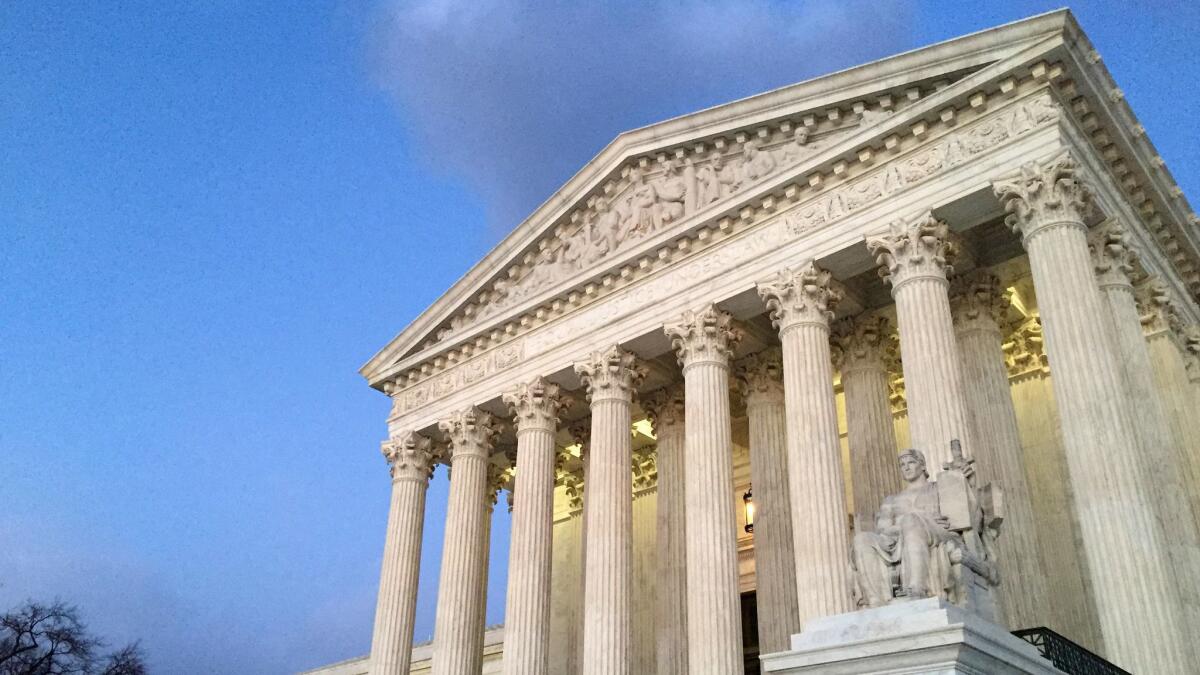Editorial: At what point does politics-as-usual become unconstitutional?

- Share via
Gerrymandering — the practice of drawing district lines in a way that gives one political party disproportionate power in Congress or a state legislature — is a time-dishonored practice in American politics. The term dates from the early 19th century. But with the advent of sophisticated computer programs, it has become increasingly easy for a party that controls a state legislature to exaggerate its influence not only in that body but in its delegation in the U.S. House of Representatives (unless a state follows California’s lead and entrusts redistricting to a citizens’ commission or some other group of nonpoliticians).
In 1986, the Supreme Court said that partisan gerrymandering could be challenged as a violation of the 14th Amendment’s equal protection clause if it involved “intentional discrimination against an identifiable political group and an actual discriminatory effect on that group.” But the court in that case didn’t find such a violation and has never agreed on a clear standard for invalidating partisan gerrymanders. That has left those in power — sometimes Republicans and sometimes Democrats — free to redraw lines to their own advantage.
That may be changing, and it is about time. On Monday, the justices agreed to hear a constitutional challenge to a map for the Wisconsin Assembly drawn by Republicans in 2011. A divided three-judge federal court had found that the map “systematically dilutes the voting strength of Democratic voters statewide.” For example, the court noted, in 2014, the Republican Party received only 52% of the two-party statewide vote share yet won 63% of the Assembly seats.
The challenge for the Supreme Court now is to articulate a standard for determining when “politics as usual” is actually a constitutional violation — and which part of the Constitution is being violated.
In a 2004 case, Justice Anthony Kennedy suggested that instead of focusing on the equal protection clause in considering gerrymandering, courts should perhaps stress “the 1st Amendment interest of not burdening or penalizing citizens because of their participation in the electoral process, their voting history, their association with a political party, or their expression of political views.”
In its opinion striking down the Wisconsin map, the lower court invoked the 1st Amendment and the 14th Amendment’s equal protection formula in defining an unconstitutional partisan gerrymander. It said the constitution has been violated if the new districts are “intended to to place a severe impediment on the effectiveness of the votes of individual citizens on the basis of their political affiliation,” “has that effect” and “cannot be justified on other, legitimate legislative grounds.”
The Supreme Court may devise a better test. But the day of reckoning for partisan gerrymandering is long past due.
Follow the Opinion section on Twitter @latimesopinion and Facebook
More to Read
A cure for the common opinion
Get thought-provoking perspectives with our weekly newsletter.
You may occasionally receive promotional content from the Los Angeles Times.









